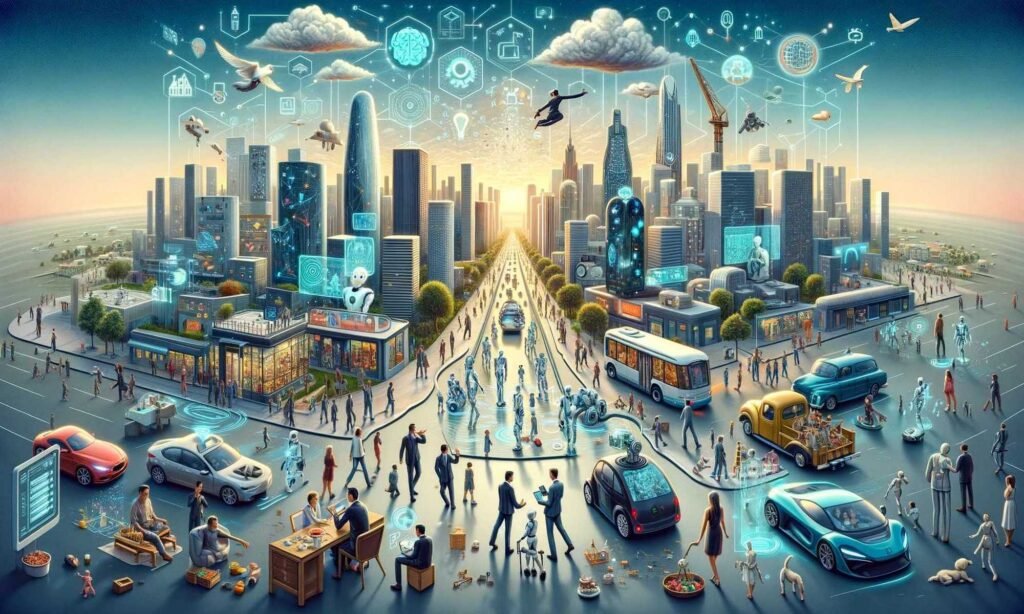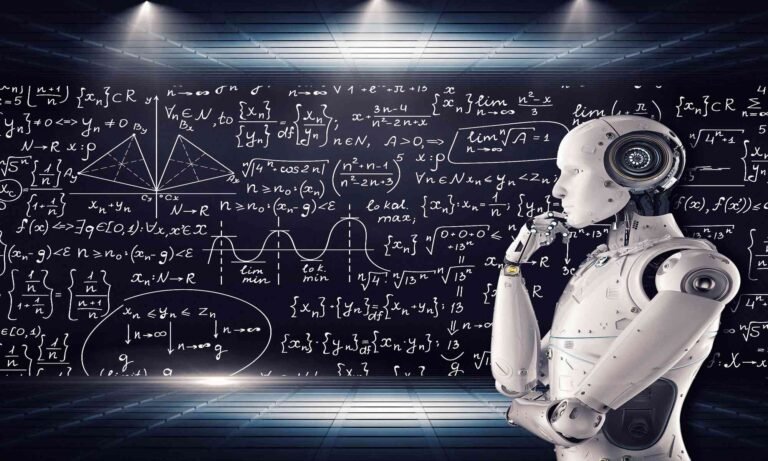Understanding Automation and AI in the Workforce
The intersection of automation and artificial intelligence (AI) is significantly transforming the landscape of work across various industries. As organizations increasingly adopt these technologies, they enhance operational efficiency, reduce costs, and improve accuracy in numerous tasks. Automation primarily involves the use of technology to carry out routine processes, while AI enables machines to simulate human intelligence through learning, reasoning, and self-correction.
Many sectors, including manufacturing, healthcare, finance, and logistics are experiencing profound changes due to these advancements. For instance, in manufacturing, robots and automated systems have taken over repetitive assembly tasks, diminishing the need for manual labor while increasing production rates. In healthcare, AI algorithms are aiding in diagnostics, enabling professionals to focus more on patient interaction rather than administrative duties. This shift demonstrates how automation can complement human expertise rather than entirely replace it.
However, the rapid adoption of these technologies also raises concerns about job displacement. Positions that require minimal skill or can be efficiently performed by machines are at risk; for example, data entry clerks and routine analysis jobs may see a decline. Consequently, workers in these roles must evolve and adapt to the changing demands by acquiring new skills that align more closely with technology-driven environments. Reports indicate that roles requiring critical thinking, creativity, and emotional intelligence are on the rise, highlighting the importance of human labor in conjunction with automation.
Several case studies illustrate the beneficial roles of automation and AI in the workforce. Companies that have integrated these technologies often report increased productivity and employee satisfaction. Moreover, experts suggest that as job displacement occurs, a parallel emergence of new roles focused on technology management, data analytics, and machine learning will offer opportunities for re-skilling and professional growth. In summarizing, while automation and AI present challenges, they also create avenues for innovation that can redefine the future of work.
Shifting Global Markets and Their Impact on Careers
The landscape of global markets is experiencing significant transformation, an evolution that is reshaping career opportunities across various sectors. As economies become increasingly interconnected due to advancements in technology and communication, professionals must understand the dynamics at play in these shifting markets. The rise of remote work, fueled by the global response to the recent pandemic, has created new pathways for employment that transcends geographical limitations. This development has led to an increase in job options for many, but it also requires individuals to embrace new working methodologies.
Another notable trend is the growth of the gig economy, where freelance and contract work is becoming more prevalent. This shift away from traditional, full-time employment allows for greater flexibility and autonomy in one’s career. However, it also necessitates a proactive approach to career management, as individuals now bear the responsibility of securing their own work opportunities and income streams. Embracing this model requires professionals to be adaptable and open to diverse forms of employment, which may include short-term contracts, project-based assignments, or portfolio careers.
Successful navigation of these evolving career paths hinges on one critical capability: adaptability. Professionals must continually update their skills to meet the demands of a rapidly changing job market. This shift towards a lifelong learning mindset is essential as technological innovations consistently reshape industry standards. As automation and artificial intelligence redefine job functions, individuals must seek opportunities to enhance their qualifications and remain competitive. Continuous learning, whether through formal education, online courses, or self-directed study, will empower professionals to stay relevant and thrive in a work environment characterized by uncertainty and rapid change.
Redefining Work-Life Balance in a Tech-Driven World
As technology continues to reshape our daily lives, traditional notions of work-life balance are undergoing significant transformation. The introduction of automation and artificial intelligence in the workplace allows for unprecedented flexibility, enabling professionals to manage their time more effectively. Remote work, once a privilege reserved for select employees, has now become commonplace, facilitating a better integration of personal and professional responsibilities. This shift, while presenting benefits, also introduces challenges that must be thoughtfully navigated.
Technology-driven work offers flexible hours, allowing employees to tailor schedules around personal commitments and boost productivity. Remote work has been linked to higher job satisfaction, improved mental health, and overall well-being. However, constant digital connectivity can blur the boundaries between work and personal life, leading to expectations of round-the-clock availability. Organizations must encourage clear boundaries, ensuring employees disconnect outside of work hours. Mental health experts suggest setting designated workspaces and schedules to reduce stress and enhance focus. Thoughtful workplace policies that balance autonomy with structured expectations can help maintain a healthier work-life integration.
Companies with successful work-life balance initiatives show that flexibility and supportive practices create healthier environments. Structured remote work strategies, such as periodic in-person collaboration and clear communication guidelines, improve engagement and efficiency. Cultivating a work culture that accommodates autonomy while reinforcing necessary structure helps employees stay productive without sacrificing personal time. As technology reshapes work dynamics, fostering adaptability and resilience will be key to sustaining a balanced and fulfilling professional life.
The Future of Employment: Trends and Predictions
The landscape of employment is poised for significant transformation driven by advances in automation and artificial intelligence (AI), as well as shifts occurring within the global economy. As these technological advancements permeate various industries, the demand for specific skills is expected to evolve, leading to new job roles and opportunities. A growing emphasis on digital literacy, adaptability, and critical thinking will shape the skillsets that employers seek in prospective employees.
Automation is projected to redefine job roles, rendering repetitive tasks obsolete while simultaneously creating new positions focused on oversight and maintenance of automated systems. Consequently, jobs that require a higher degree of creativity, emotional intelligence, and complex problem-solving will gain importance, underscoring the necessity for workers to develop these skills. The ability to collaborate with AI will likely become a crucial aspect of many jobs, emphasizing the need for ongoing professional development and training.
However, beyond incremental technological advancements, a more profound shift looms – the Tech Singularity, a hypothetical point at which AI surpasses human intelligence, leading to exponential and unpredictable transformation. As AI systems become increasingly autonomous, the nature of work itself may be fundamentally redefined, with traditional job roles being augmented or even replaced by hyper-intelligent systems capable of self-improvement. This evolution raises crucial questions about the relevance of human labor, ethical considerations in AI-driven decision-making, and the necessity for reimagining economic models that ensure equitable distribution of wealth in a post-labor society.
As global market conditions shift, traditional full-time employment may give way to more freelance, contract, and gig work. This flexible labor market offers new opportunities but also raises concerns about benefits and stability. To remain competitive, workers must build strong personal brands and network strategically. Meanwhile, the approaching singularity presents both promise and uncertainty. AI may enhance efficiency and problem-solving but requires careful oversight to ensure it complements, rather than replaces, human labor. Thoughtful policies and adjustments in education will be crucial in preparing the workforce for this transformation.
Embracing these employment trends is essential for individuals and organizations alike. Adapting to AI-driven automation and evolving job structures will shape the future of work. By developing relevant skills, fostering ethical AI practices, and creating flexible employment models, workers can better navigate this changing landscape. Policymakers must also promote sustainable economic frameworks to ensure AI benefits society equitably. Balancing innovation with regulation will be vital in maintaining an inclusive and stable job market in the years ahead.
What’s More
The posts in My Blog feature reflective, story-driven pieces rooted in personal and societal insights.
The topics in My Interests explore abstract, philosophical ideas and their cultural and societal impact.
👁️ 9,980 Views


















